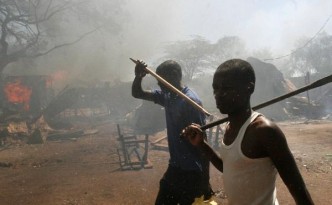Zika found in saliva, urine in Brazil; U.S. offers sex advice
By Pedro Fonseca RIO DE JANEIRO (Reuters) – Authorities in Brazil said on Friday Zika has been detected in patients' saliva and urine, adding to the concern over the spread of the virus, while U.S. officials offered new guidance on sex for people returning from Zika-hit regions. Zika, linked to thousands of birth defects in Brazil, is primarily transmitted through mosquito bites, but word surfaced this week of infections through sex and blood transfusions, and news of the presence of the virus in the saliva and urine of two patients prompted new worries. In fact, the president of the Brazilian federal biomedical research institution that made the announcement urged pregnant women not to kiss strangers during the country's free-wheeling Carnival celebrations.



